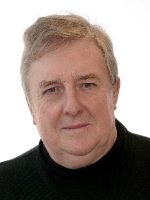Gene-edited crops are now a reality, but not in Europe
Gene editing, in particular CRISPR-Cas based techniques, allows scientists and breeders to make targeted changes in the DNA of organisms, offering tremendous opportunities to enhance agricultural productivity, improve crop resistance to pests and diseases, increase nutritional value, and reduce environmental impact. By precisely modifying specific genes, researchers can accelerate the breeding process and develop desirable traits more efficiently than traditional breeding methods. As detailed in the EU-SAGE data base numerous applications in crops have now been described in the scientific literature and it is expected that many will find their way to commercialization.
The legal landscape surrounding gene editing in agriculture varies across different regions. Many regions, such as most countries of North-and South America, Australia, Japan, India, Nigeria, China and the UK have adopted flexible regulatory frameworks in favor of gene editing in agriculture. Unfortunately, the EU takes a precautionary approach and classifies gene editing, even when it involves a single base pair change, as genetically modified organisms, subjecting them to strict regulations. This strict regulatory approach has created challenges for researchers and businesses seeking to utilize gene editing technologies in agriculture within Europe. Although, the EU is working on a new, science-informed, legislation to allow for gene editing, it remains pivotal that the scientific community continues to emphasize the enormous potential of gene editing for sustainable food security in a changing climate.
Biography:
Dirk Inzé is a global leader in plant biology. His research ambition is to obtain a holistic understanding of the molecular networks regulating plant organ growth and crop productivity. His work has opened up new perspectives for providing food security for the growing world population in a changing climate.
Dirk Inzé received his PhD at Ghent in 1984. In 1990, he was appointed Research Director of the French National Institute for Agricultural Research (INRA), where he initiated highly successful research programs on the plant cell cycle and growth control. In 1995, he became Professor at Ghent University and he was the scientific founder of the biotechnology company CropDesign, which was established in 1998 and acquired in 2006 by BASF Plant Science. In 2002, Dirk was appointed Director of the Center for Plant Systems Biology of the VIB. Under his directorship, the Center – currently employing approximately 300 individuals – became one of the world leading centers for advanced plant sciences. Dirk’s research was recognized by numerous awards and he is a member of several science advisory boards. He currently owns, for the second time, an advanced ERC grant and his work received >61,200 citations (H-factor 138). In 2017, Dirk was awarded with the prestigious World Agriculture Prize. In 2019 he was elected to the rank of AAAS Fellow by the American Association for the Advancement of Science (AAAS) and in 2020 he was elected to be a member of Academia Europaea. In 2021, Dirk was appointed member of the Science Council of the ERC. He is the chairperson of EU-SAGE, a consortium of 158 European plant research institutes advocating for the use of Gene editing for a sustainable agriculture.


